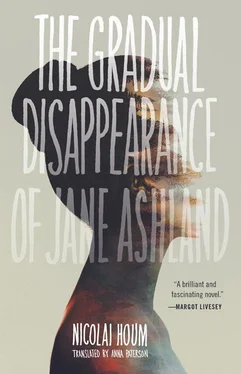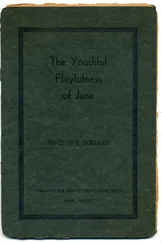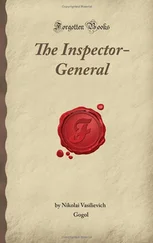“I open my mouth and sounds come out. Mostly, I try to say the things people want to hear. I forgive you, I forgive you, I forgive you.”
Myers was twisting uneasily in his seat. Then he rubbed his face again.
“You want me to say whatever will make your head work properly. There’s a system built into your mind that makes you want to stay alive. The system asks me to help you. Perhaps I can. But how much is the built-in system worth? What are you worth?”
He looked at her with the eyes of an animal one is about to kill.
“Please, Ms. Ashland, there are so many hours in here.”
“There are just as many outside.”
Jane rose. As she started walking around the table, he also got up and came toward her. The guard’s hand went up to something in his belt. And then Scott Myers put his arms around her and hugged her tight. A large, soft little kid.
Jane heard the guard say: “Five seconds, Myers.”
She noticed that he nodded over her shoulder, and sensed his breath and the smell of his body, stale and boyish, and automatically began to stroke his back as you would with somebody else’s child, a little one who had fallen over and hurt himself in the playground when the parents were not around, and you would comfort the child because that is what you have to do, which makes you realize that without feeling anything, it is possible to imitate how it used to be done.
THERE’S SOMETHING GOINGon outside. It sounds like a heavy object being pulled through the heather. She unravels her arms from the sleeping bag, like a brittle insect. Next, the legs. Now she is on all fours, gathering strength in the glowing light that filters into the tent. Once the zip is down, she sees the moon shining. Only torn-off rags of the fog hang on to the slope, the rest is gone.
She crawls outside and attempts to get upright. She stands, with flashing in her eyes, rocks from side to side, draws the cold air into her lungs. The mountains are there again. A faint red sheen glows at the far horizon but the cold has stretched the sky until it turned white, leaving only small moth holes that let out the ancient light of eternity.
Now that the air has cleared, she discovers that the tent has been erected on a raised bit of ground next to a marked path. In the moonlight, the cairns show up like lit lamps. Below, she sees the wide vein of silver that is the main road. Two cars move smoothly in the valley with a discreet shushing sound that she can, more or less, distinguish from the blood rushing through her ears. She sees the railway line. The electricity poles along it look like scorched tree trunks after a forest fire. Ulf had taken for granted that she would find her way back. In more ways than one, they were back to where they started.
She realizes what woke her and counts fourteen of them moving slowly as a group over a low ridge behind the tent. Long, ragged fur almost covers their hooves and conceals the swinging gait of the grazing animals. They are traversing the landscape as if on rails, with their muzzles buried in the heather.
An attack of cramp makes Jane bend over. She stands for a long time with her hands on her knees. Then, gradually, she straightens up and lets everything that is not moonlit and cold pass through her mind untouched before she starts walking with long, weightless steps toward the animals.
I’m grateful to the contributors of Beyond Tears: Living After Losing A Child (ed. Ellen Mitchell) for their insight and willingness to share their experiences.

BORN IN 1974Nicolai Houm has published two novels, which were both critically acclaimed in Norway. The Gradual Disappearance of Jane Ashland is the first publication of his work in English. He works part-time as an editor in the publishing house Cappelen Damm, and lives in Lier with his wife and daughter.
Copyright © 2018 by Nicolai Houm
English translation copyright © by Nicolai Houm and Anna Paterson
Original title: Jane Ashlands gradvise forsvinning by Nicolai Houm
© 2016 by Tiden Norsk Forlag
All rights reserved. No part of this book may be used or reproduced in any manner whatsoever without written permission from the publisher except in the case of brief quotations embodied in critical articles or reviews. For information, contact Tin House Books, 2617 NW Thurman St., Portland, OR 97210.
Published by Tin House Books, Portland, Oregon, and Brooklyn, New York
Distributed by W. W. Norton & Company
The Library of Congress has cataloged the printed edition as follows:
Names: Houm, Nicolai, 1974- author. | Paterson, Anna (Anna Tora), 1942- translator.
Title: The gradual disappearance of Jane Ashland / Nicolai Houm ;
translated by Anna Paterson.
Other titles: Jane Ashlands gradvise forsvinning. English
Description: First U.S. edition. | Portland, Oregon ; Brooklyn, NY :
Tin House Books, 2018.
Identifiers: LCCN 2018025839 | ISBN 9781947793064 (pbk.)
Classification: LCC PT8952.18.O96 J3613 2018 |
DDC 839.823/8—dc23
LC record available at https://lccn.loc.gov/2018025839
ISBN 9781947793125 (ebook)
First US Edition 2018
Interior design by Jakob Vala
www.tinhouse.com














